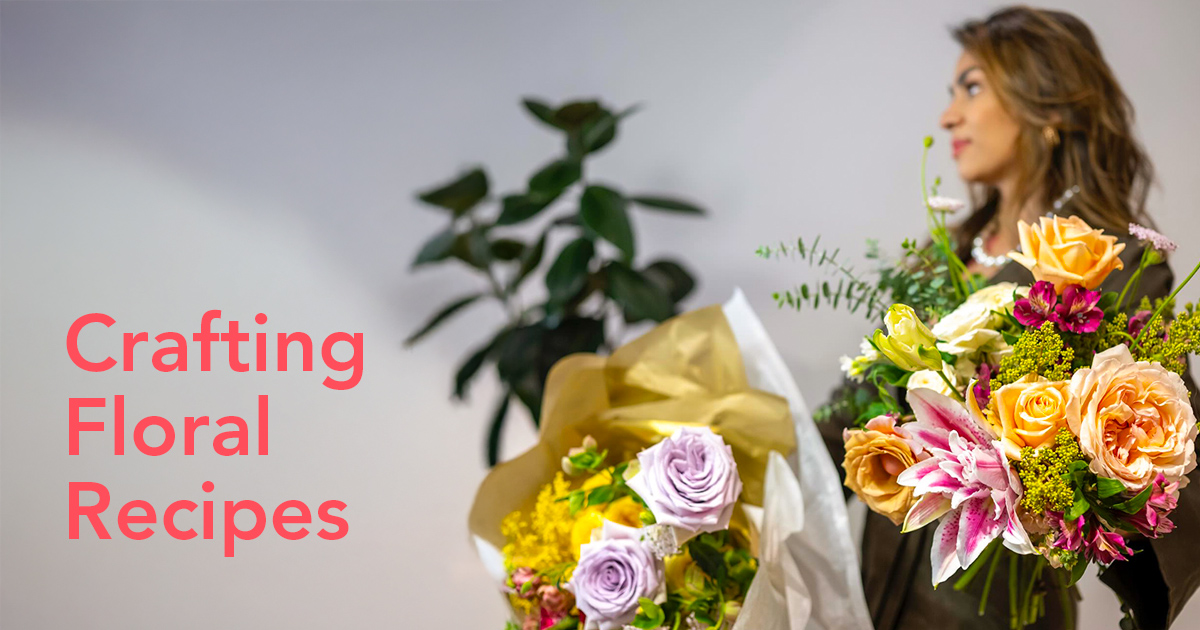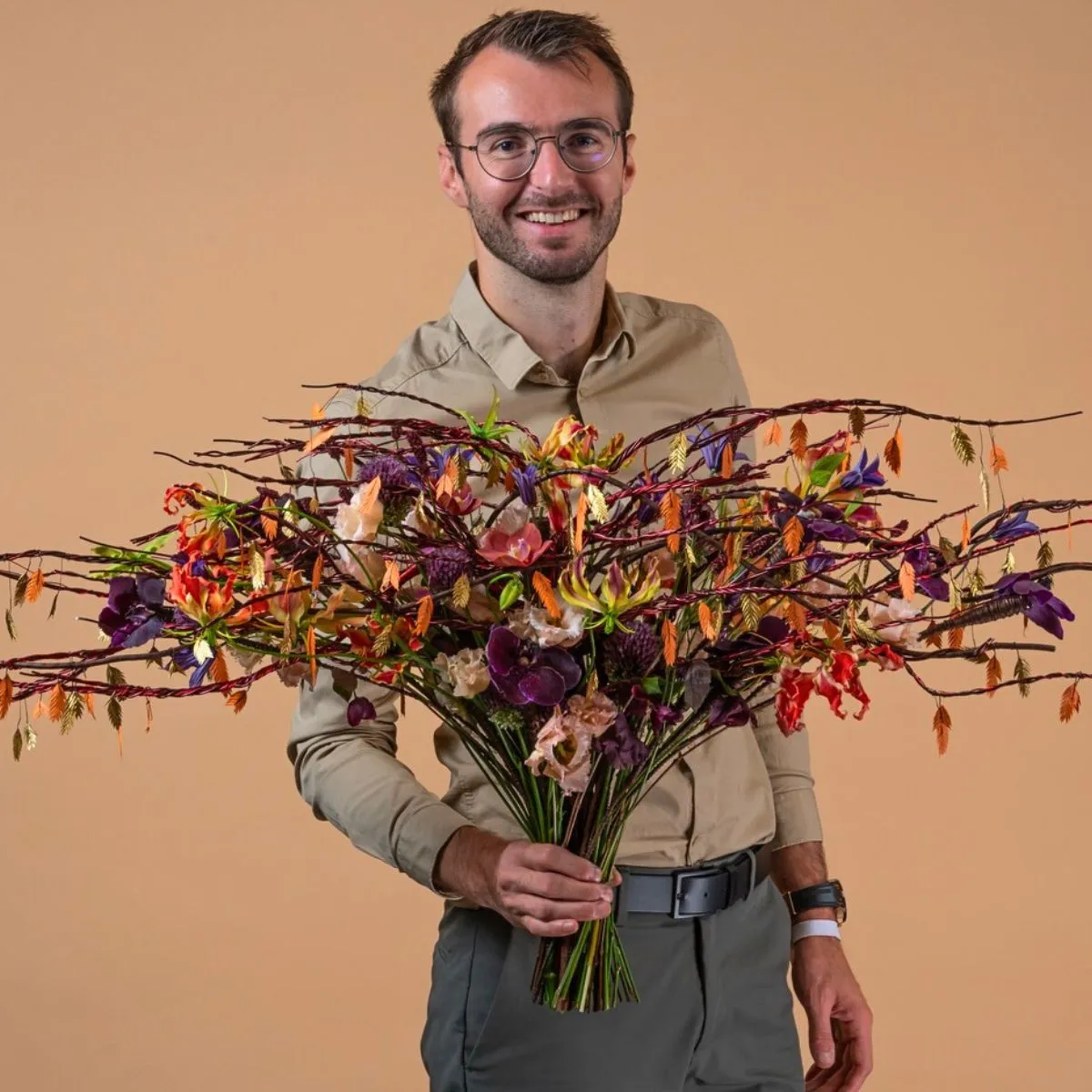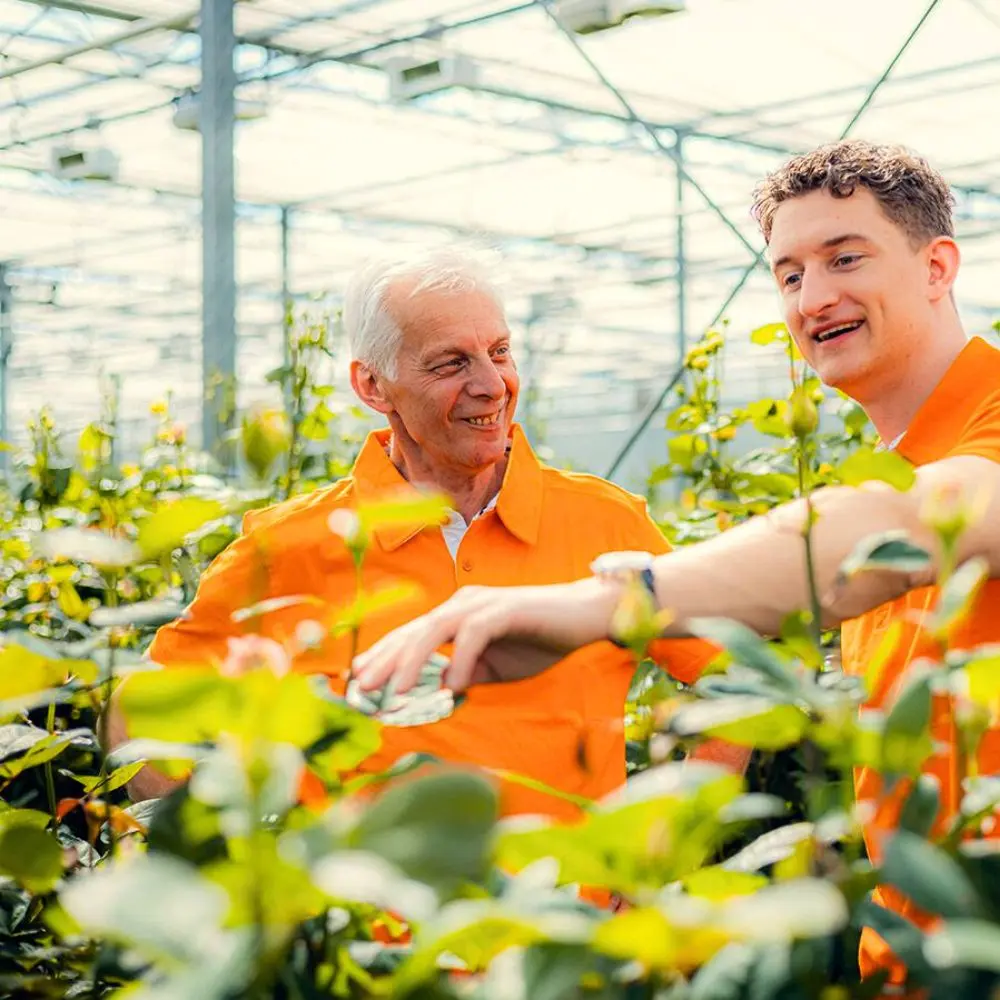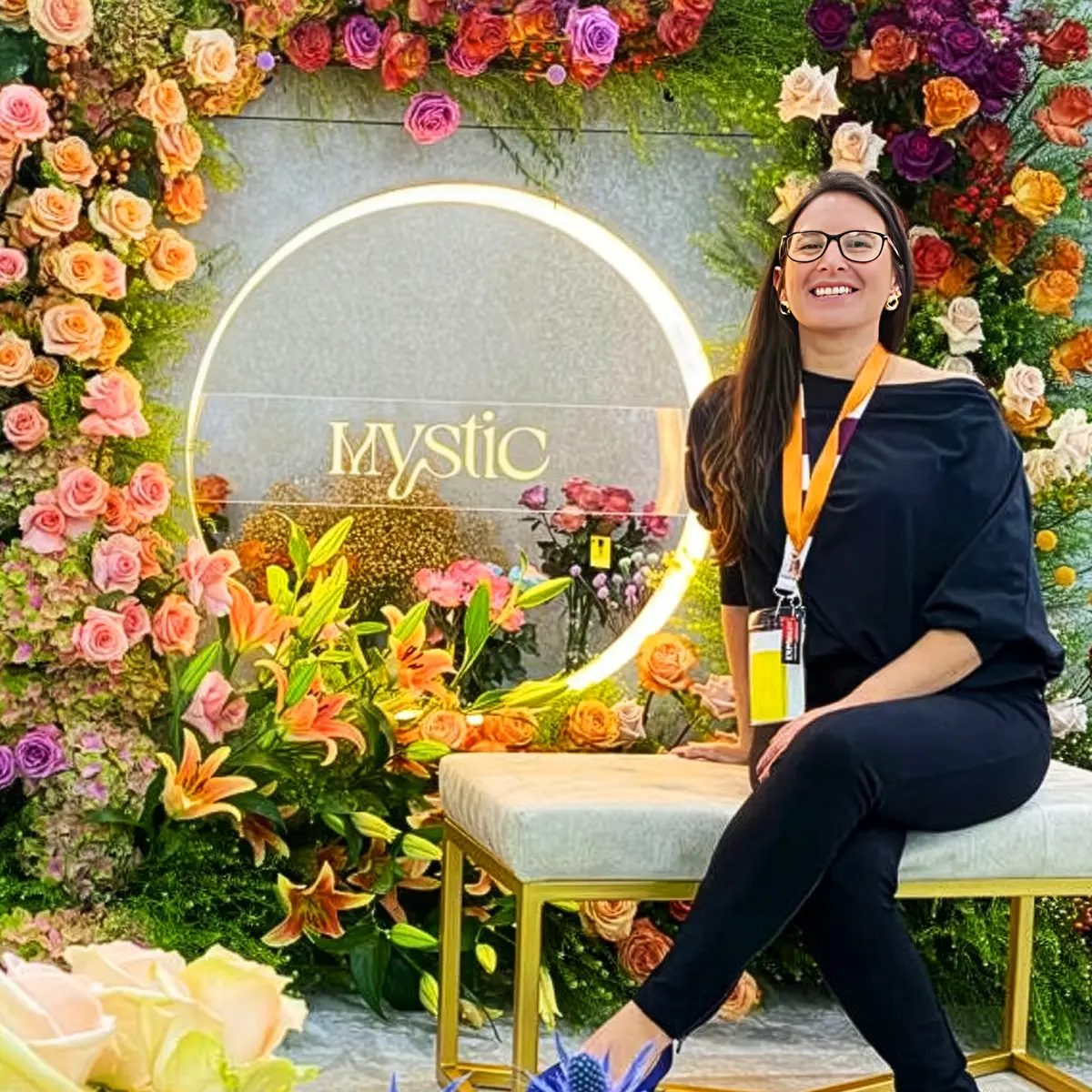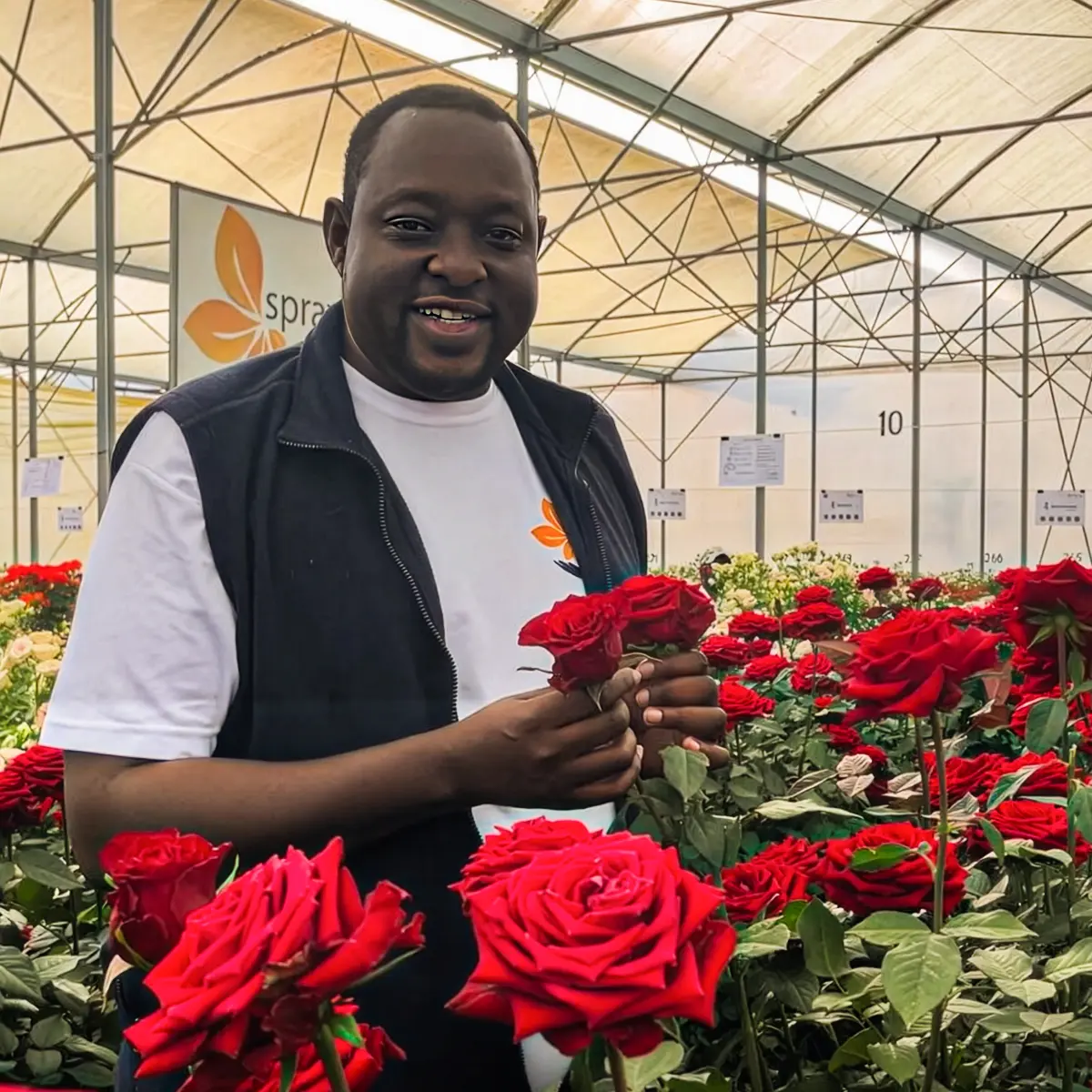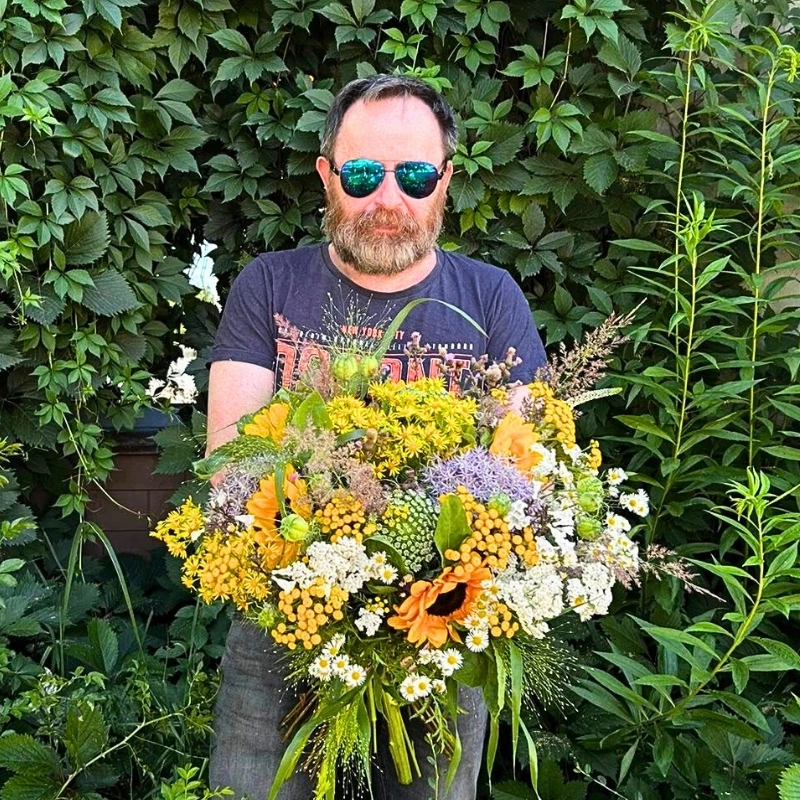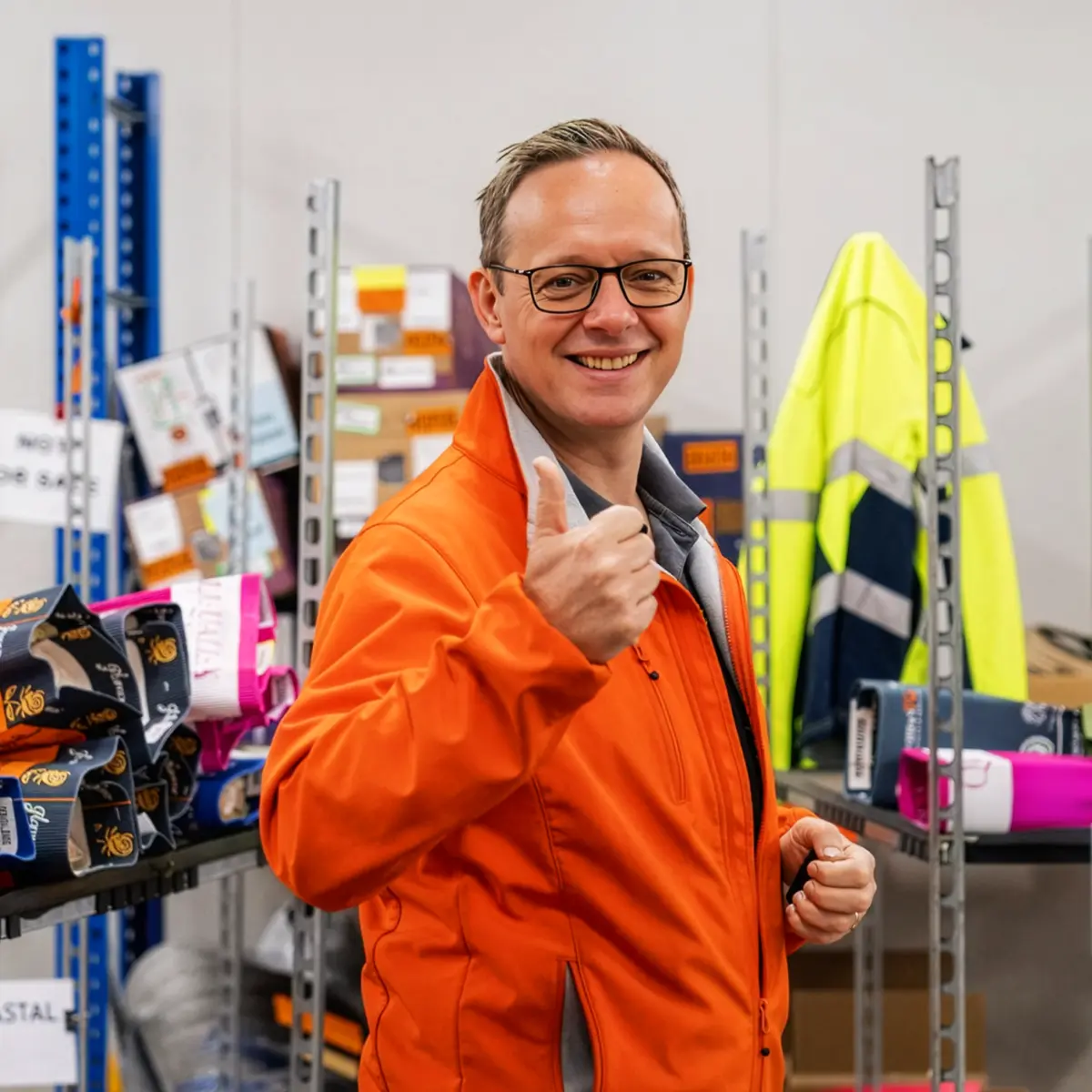Once you are exposed to flowers, you experience an irresistible pull to explore. The same can be said about Shallima Turizo Dancur, who experienced flowers during her time as a chef for large-scale events, where flowers were used abundantly. That's how her passion for flowers was nurtured, and without any resistance, it was a no-brainer for her; she loved flowers.
Fast forward she is a renowned designer, creative director, and now the CEO of her own shop, Lottas Floral Studio. In this week's 10 questions feature, she delves into her journey, her take on sustainability issues within the floriculture industry, and highlights about LATAM growers and flowers.
Question 1
For those who don’t know you, who are you, and what do you do?
"Hi, I’m Shallima Turizo Dancur, a chef by profession. It was precisely while preparing the culinary art at weddings and large-scale events that I discovered my love for flowers. Back then, while creating recipes and gastronomic experiences, I realized that my true passion was applying that same sensitivity for details, color, and composition into the floral world. That’s how my natural transition was born: from “kitchen recipes” to “floral recipes,” thereby connecting my culinary background with the art of design, with the magic of flowers.
Along this newfound path in life, I sought to refine my passion by attending several floral design schools, which have greatly shaped and enhanced my formation into the designer I am today. As I gained confidence in my artistic creations, I opened my own shop and founded Lottas Floral Studio, where I serve as CEO and creative director. In our studio, we seek to transform and position each variety, creating unique pieces for all types of spaces, events, and locations. We specialize in designing personalized experiences through the floral language intended for high-end weddings, corporate events, table styling, editorials, within the floral industry itself, and much more. Each proposal seeks to convey authenticity, emotion, and beauty in balance with the essence of each client.
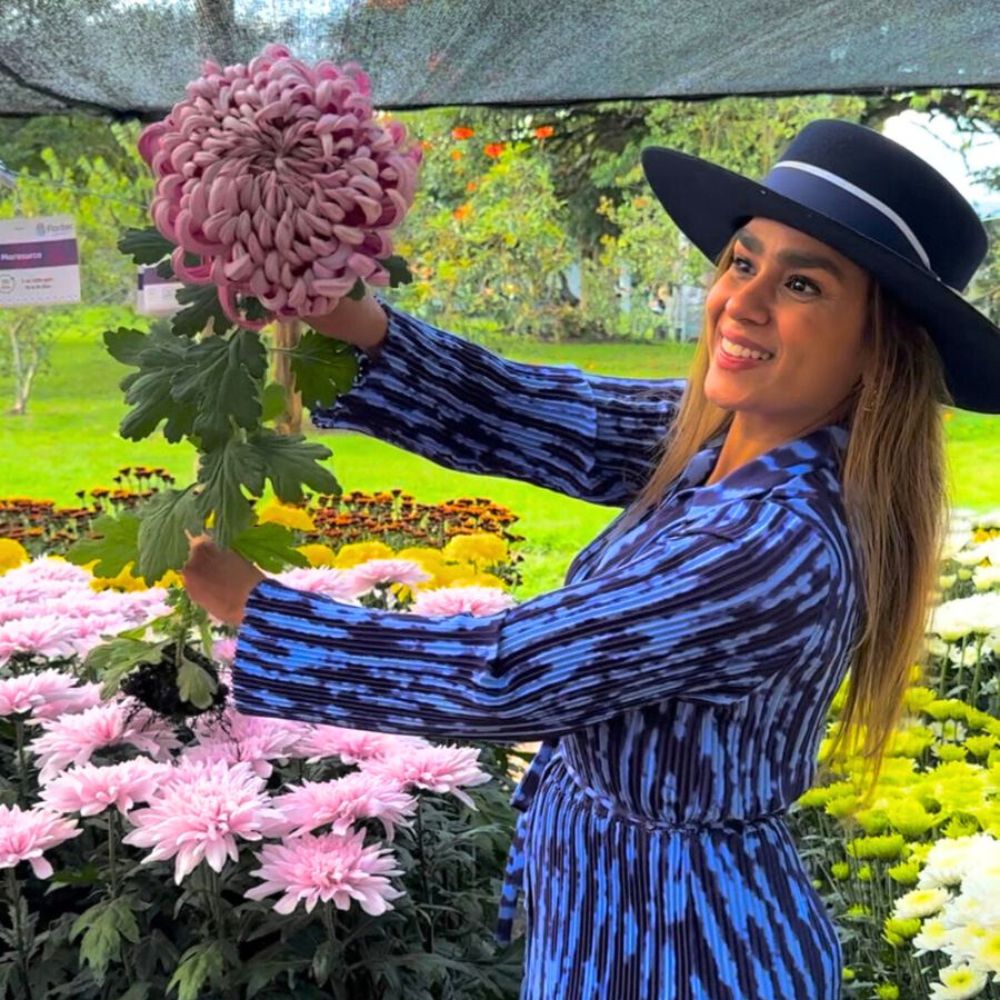
During the course of my floral journey through life, I have expanded my reach by becoming a local voice for Thursd and exploring talent as a leader for Thursd Latam, where I’ve managed to highlight the artistic traits of our region within the global floral industry. My role focuses on giving visibility to its breeders, its farmers, and all related brands that are transforming our floriculture, building bridges between Latin America and the outside world while contributing to the idea that our flowers exemplify a universal language of connectivity and positive change."
Question 2
What is so special about your job?
"What makes my work special is the incredible power flowers provide me to transform absolutely everything. They can change a space, a moment, or even a person’s mood. For me, it’s not just about designing something pretty, but about taking on the responsibility of creating experiences that mark a before and after, leaving everlasting memories for those who experience them.
Another aspect I deeply value with my work is how it mostly allows me to own my own time, giving me the freedom and autonomy to decide where I want to take each project and stage of my professional life. That self-gained independence allows me the artistic space that I need to create a real feel drawn from my own authenticity that hopefully contributes genuinely and positively at the same time to this beloved industry.
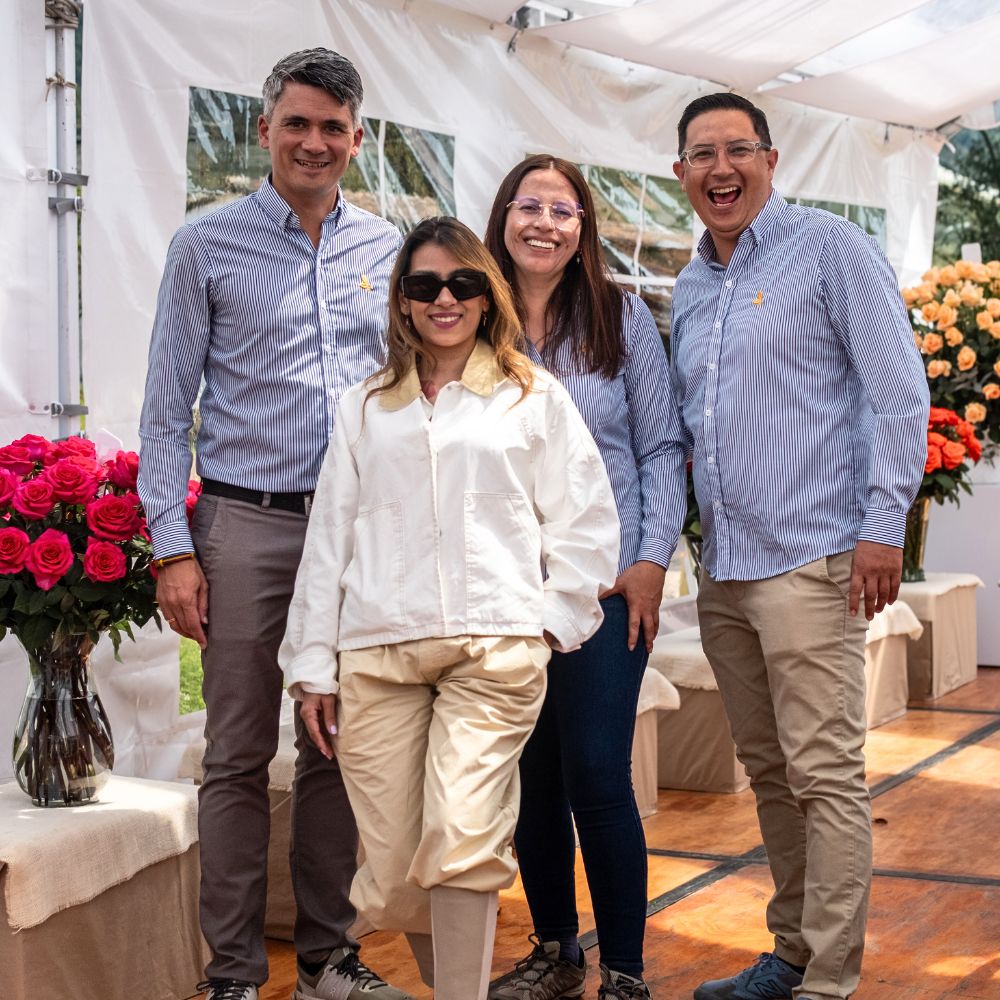
This career that I embarked on has also allowed me to travel and meet incredible people around the world that share this passion, both inside and out of the industry; encounters that enrich my vision and also shape the way I create. That wealth of human and cultural connections makes every project unique. Working with flowers constantly reminds me that I’m contributing to something bigger: a universal language that inspires, connects, and transforms lives."
Question 3
Are there any specific challenges or obstacles you’ve faced at work, and how did you overcome them?
"One of the biggest challenges I’ve faced has been educating clients in Latin America to understand that floral design is not just something “pretty,” but an experience with intention, sensitivity, and unique added value. It’s not easy to tell a client what they truly need, since people often ask for “more” or tend to follow very traditional patterns.
A year before the pandemic and during it, I managed to get people to identify with my content, my design, and the essence of Lottas Floral Studio. It took years of work to differentiate what we do and show that it’s not just about decorating, but about conveying emotions and telling stories through flowers. Today, I feel I’ve achieved one of my greatest accomplishments: attracting clients who understand my vision, who come to me because they want to express authenticity, luxury with sensitivity, and something that makes them unique.
At the industry level, I feel even prouder to have earned a place as one of the few —and perhaps the only— floral designer in Latin America who truly understands, respects, and focuses 100% on supporting, promoting, and highlighting the products, work, and achievements of our industry. In a sector where most decisions are often made by men, gaining respect and recognition as a creative has been deeply rewarding. Today, I am invited to give my opinion on catalog design and activate brand products, and also invited to important projects where my opinion and creative vision are valued. Being recognized as someone who adds value to strategic industry decisions is, without a doubt, one of my greatest achievements."
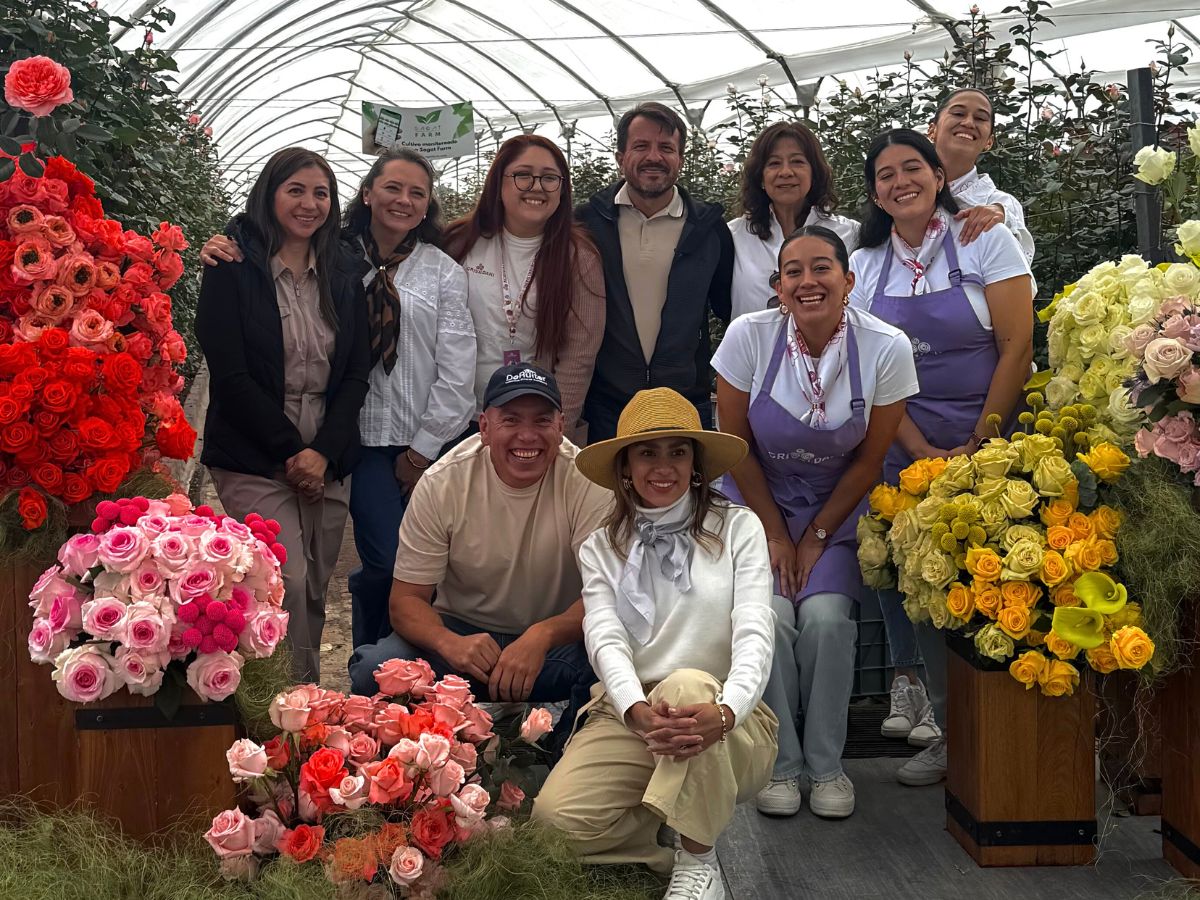
Question 4
What are the threats in the industry, and if so, do you have any solutions for them?
"I believe one of the main threats in the industry is the way sustainability is being communicated and understood. Nowadays, we see a lot of content on social media portraying floriculture as one of the most polluting industries, without considering everything behind it or the many efforts that have been made. Moreover, the concept of sustainability is often reduced only to the ecological aspect: waste, water, and energy.
However, sustainability is much broader. It also means how we support our communities, how we care for employees, how we invest in education, and how we create more humane and fair environments. As long as we keep seeing sustainability from only one angle, it will be hard to truly move forward.
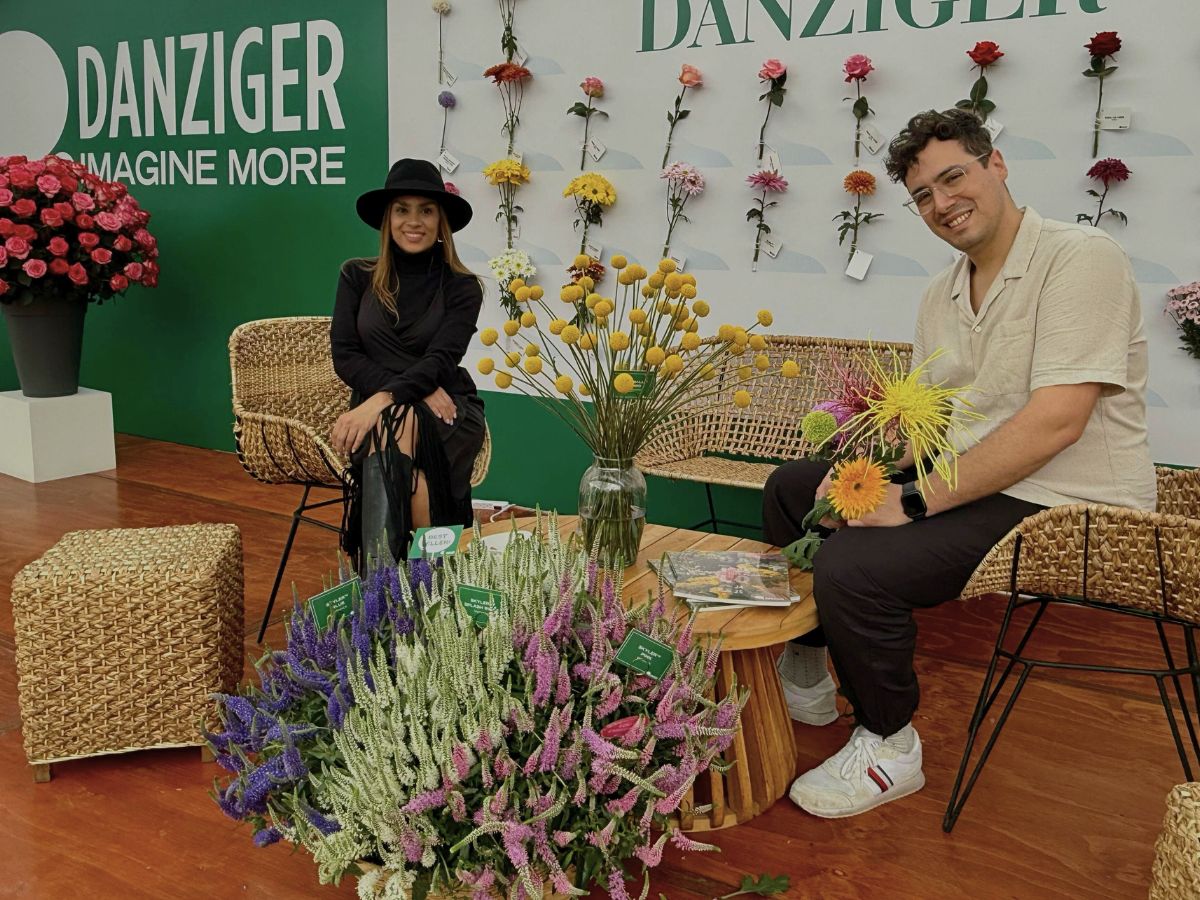
I’m convinced that once we embrace a more holistic vision —integrating environmental, social, and economic aspects— the industry’s efforts and achievements will become much more visible and meaningful. I hope that all players in the floral chain take on this comprehensive responsibility, so that we not only care for the planet, but also for the people who make it possible for flowers to reach the world."
Question 5
How has technology, such as e-commerce platforms or digital marketing, affected your industry? What strategies have you employed to stay competitive?
"I believe technology has completely changed the way we connect with the world and with our industry. Today, digital marketing and social media are no longer just about selling, but about entertaining, educating, and building community. The real challenge is using these tools without losing the essence that defines us, and standing out authentically.
Social media, in particular, has made it clear that every person or company´s projects are a version of themselves, and the audience decides whether to stay in or leave. It may sound harsh, but that’s how the digital landscape works today. That’s why I believe we must stay open-minded, keep learning, and use these tools with intention and responsibility. Those who cling only to tradition risk being left behind, while those who adapt have the chance to grow and connect in new ways.
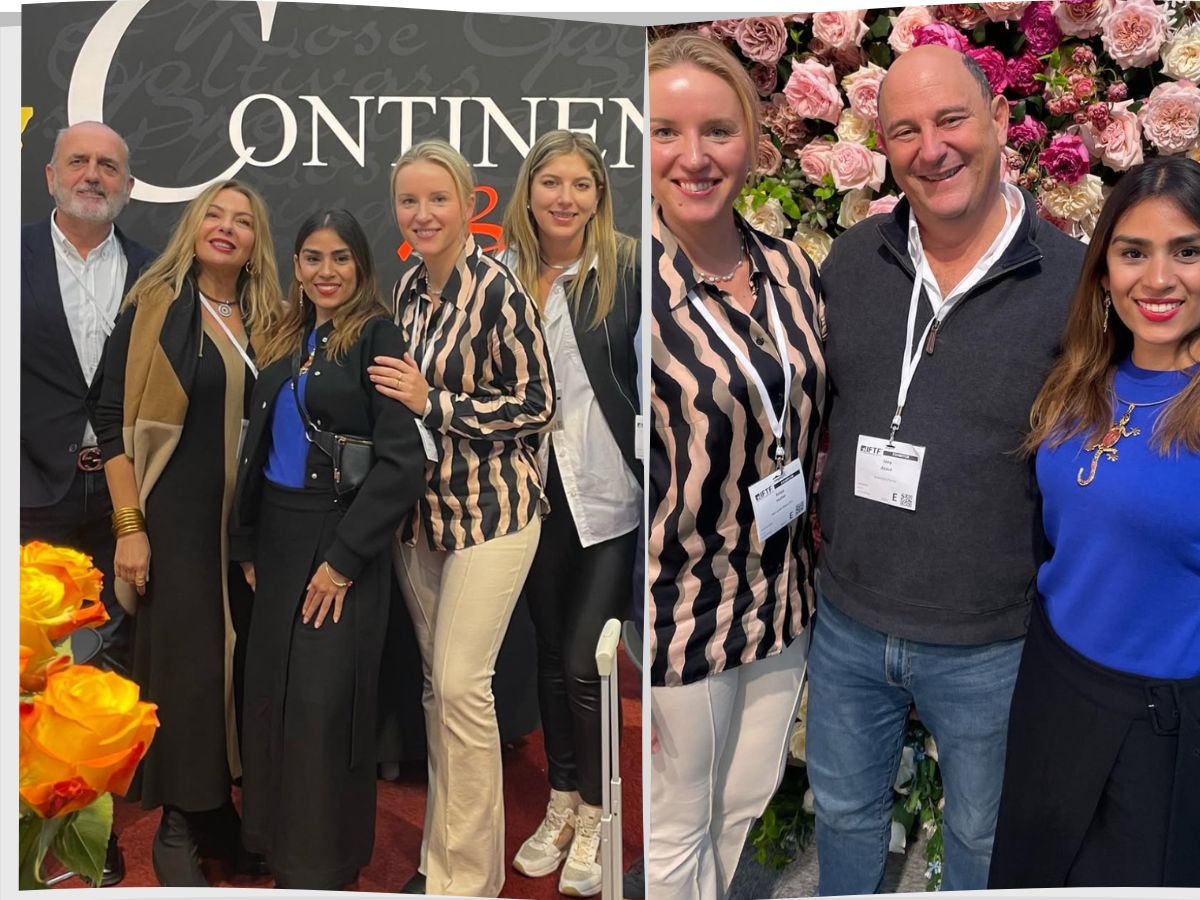
In my case, I’m currently working on developing major projects and content that bring together everything I’ve learned and contributed to the floral industry. My goal is to share real value with the community that follows me or seeks to learn, while also monetizing in a consistent and sustainable manner. It’s something I resisted in the past, but I’ve realized that in such a fast-changing environment, embracing these tools can be the key to growth and competitiveness —always staying true to my vision and to the essence of Lottas Floral Studio."
Question 6
Who (in or outside the floral industry) is an inspiring example to you? And Why?
"More than reflecting upon a single person, what truly inspires me is the incessant work of the breeders. I believe they are the ones who have sparked a true obsession and passion for this industry in me. I truly admire the way they stay in constant pursuit of innovation, creating varieties that not only reflect current trends but also adapt to a world in permanent transformation.
Their resilience, creativity, and vision are remarkable. I don’t have a favorite because it’s impossible for me to choose just one; I deeply respect them all. They are a living example of how dedication and reinvention can transform an entire industry. Their way of working, persisting, and persevering is what inspires my own journey as a designer and creator within the floral universe."
Question 7
How do you handle stress or difficult moments in your life?
"I’m quite a fast-paced person; it’s hard for me to stay still, and I always want everything to turn out just as planned. Sometimes that doesn’t translate into stress, but it delves more as an anxiety that self-generates when I feel I can’t control every detail. Over time, however, I’ve learned to listen to myself, to pause, and to realize that difficult situations, just as they come, also pass.
It’s not always easy, especially because I’m a very emotional person, but I try not to get trapped in the negative. Instead, I look for the lesson in every experience, so I can grow, improve, and find peace. This ability to transform anxiety into reflection has helped me build resilience and understand that even the hardest moments can be opportunities to move forward with greater calm and clarity.
I also keep God very present in everything I do. That connection reminds me that not everything depends on me, that there’s a greater purpose, and it gives me the peace I need to face any situation."

Question 8
What has been the best (floral or non-floral) news for you lately, or of the last year?
"The best news for me has been starting a new project that I’m really excited about. I can’t share many details yet, but it’s focused on contributing to education and the floral industry from a different perspective. I hope that by next year we’ll be able to present it and share it with everyone, because I believe it can bring real value to our community."
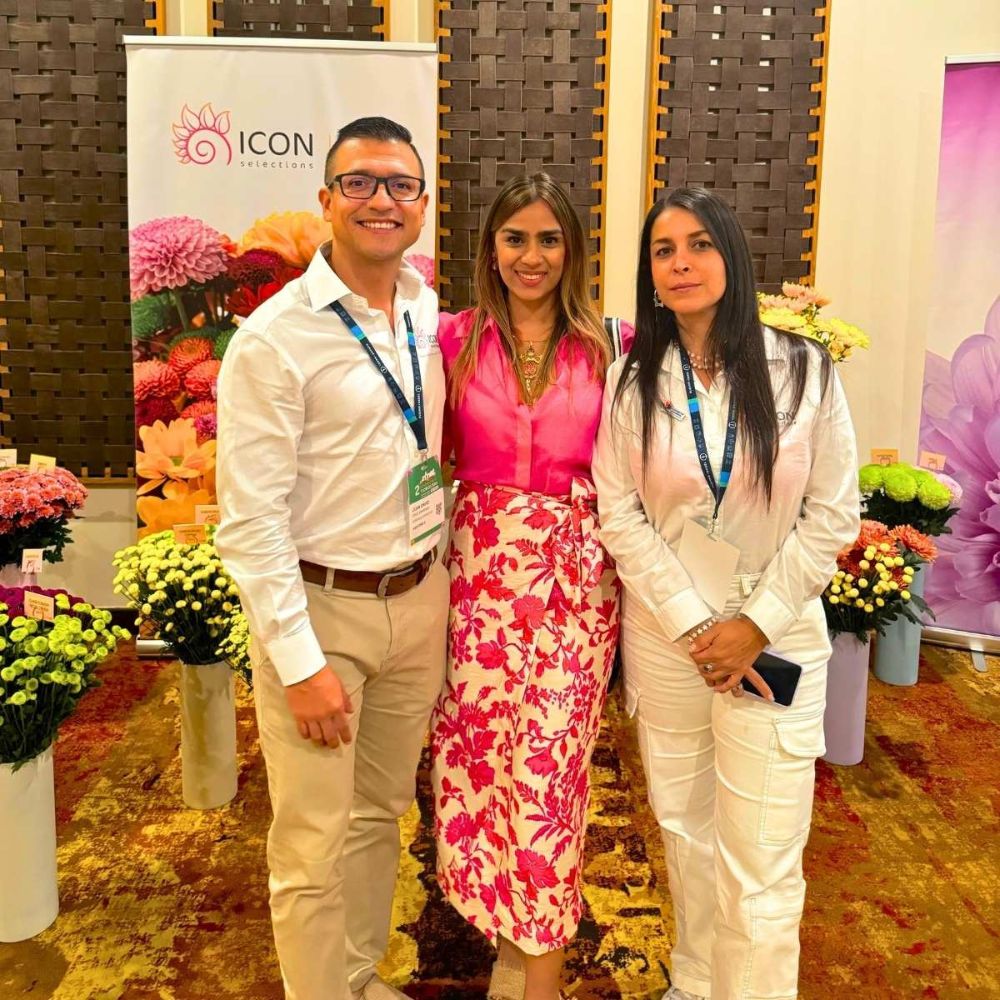
Question 9
Which is your favorite flower/plant, and why is it good for you?
"I couldn’t choose just one favorite flower, because as a creative, I feel that every variety has its own moment to shine and express its full potential. However, when it comes to breeding, origin, and history, I’ve always been deeply fascinated by Japanese genetics. Their philosophy of work, their ability to combine perfection, delicacy, and innovation, is truly admirable. I think that’s where I find a great source of inspiration for my own creative path."
Question 10
What are you doing this weekend?
"My weekends almost always involve some floral design, and even when I’m with friends or family, it’s something that never fails (and something that I truly enjoy).
This one, in particular, will be very special, as I’ll be living another floral experience in Ecuador and also attending a violin and cello concert. I love for my free time to be calm and filled with inspirational art, because those are the moments that recharge my soul and inspire me to keep creating."

All pictures courtesy of Shallima Turizo Dancur.

